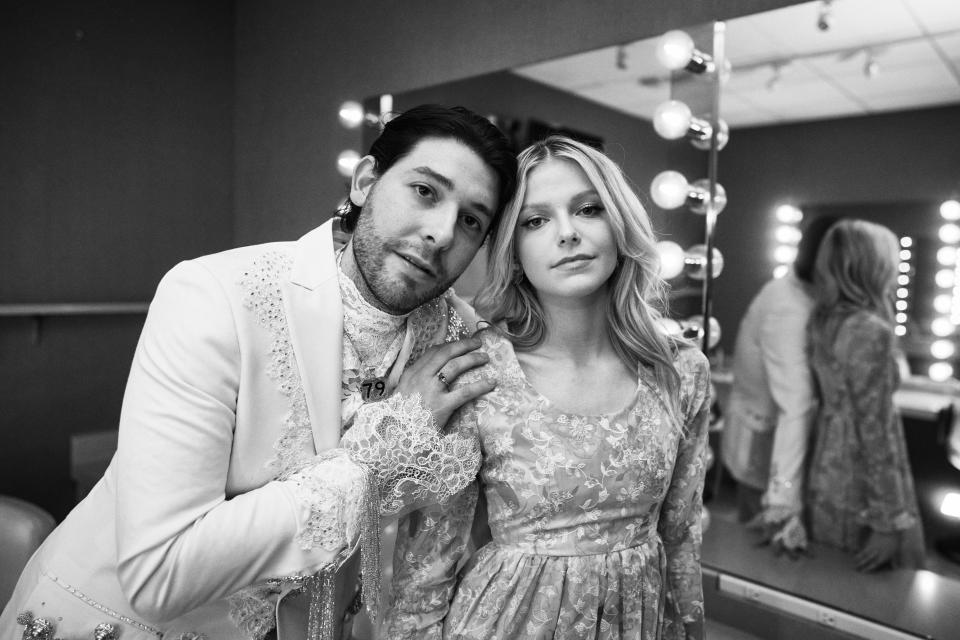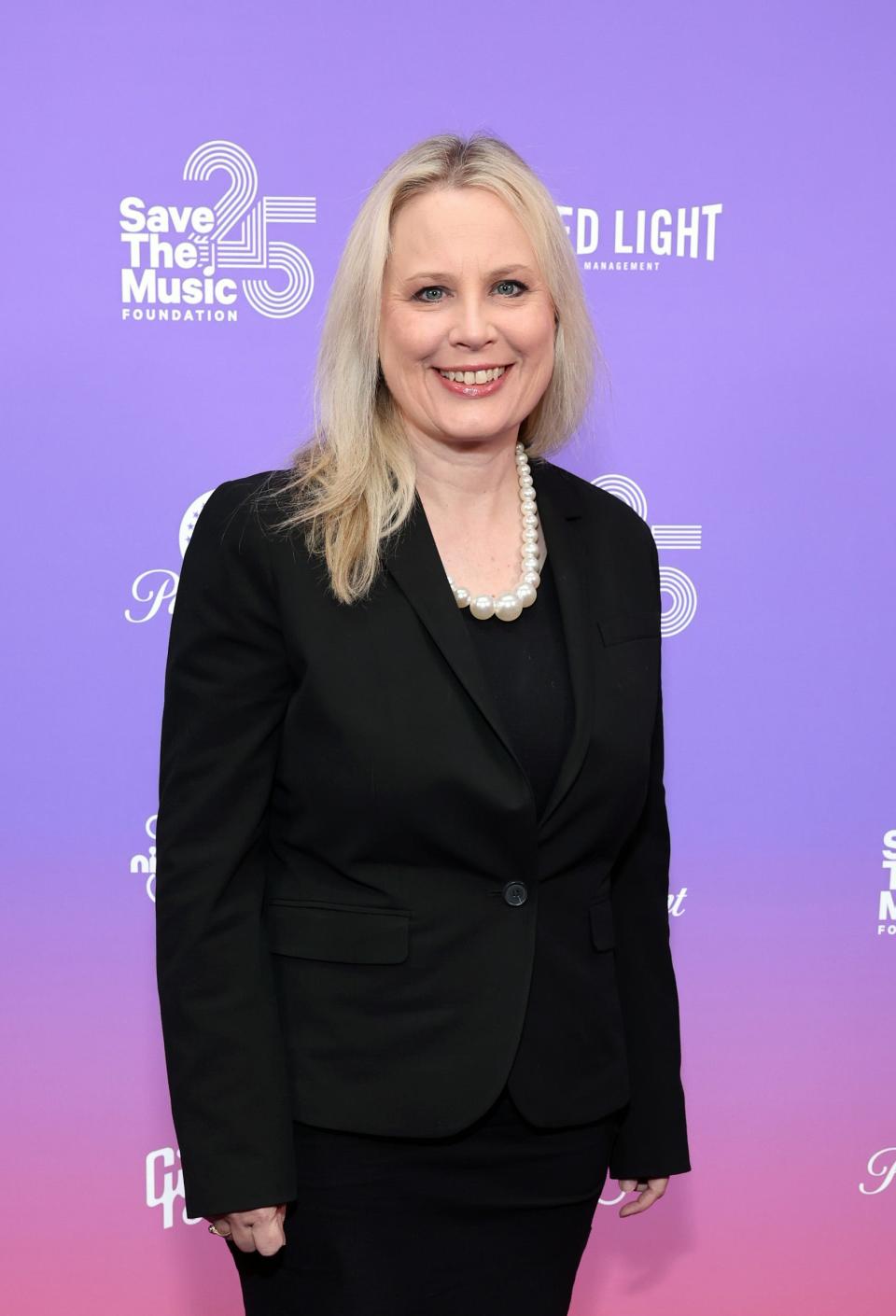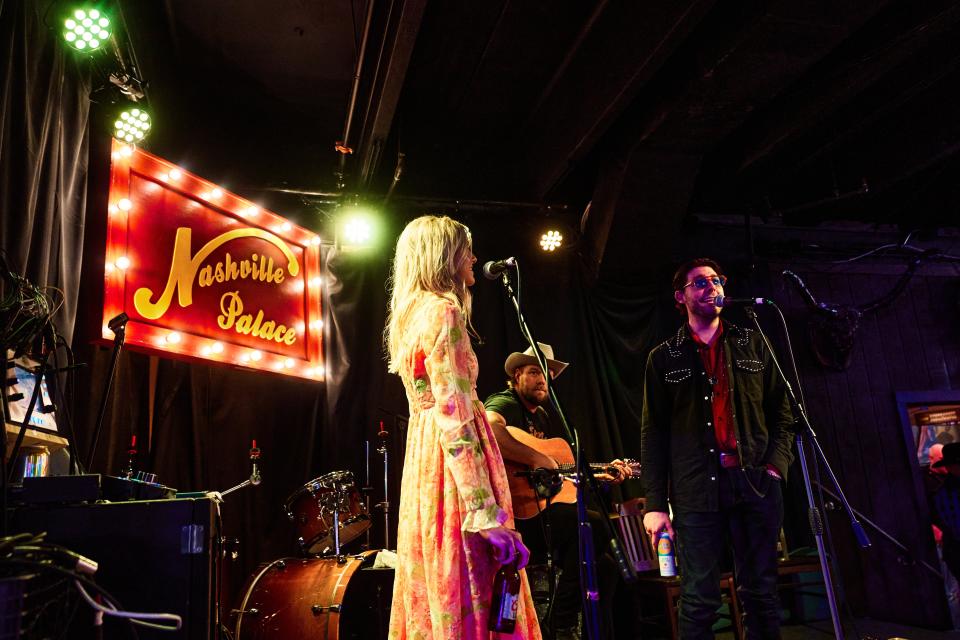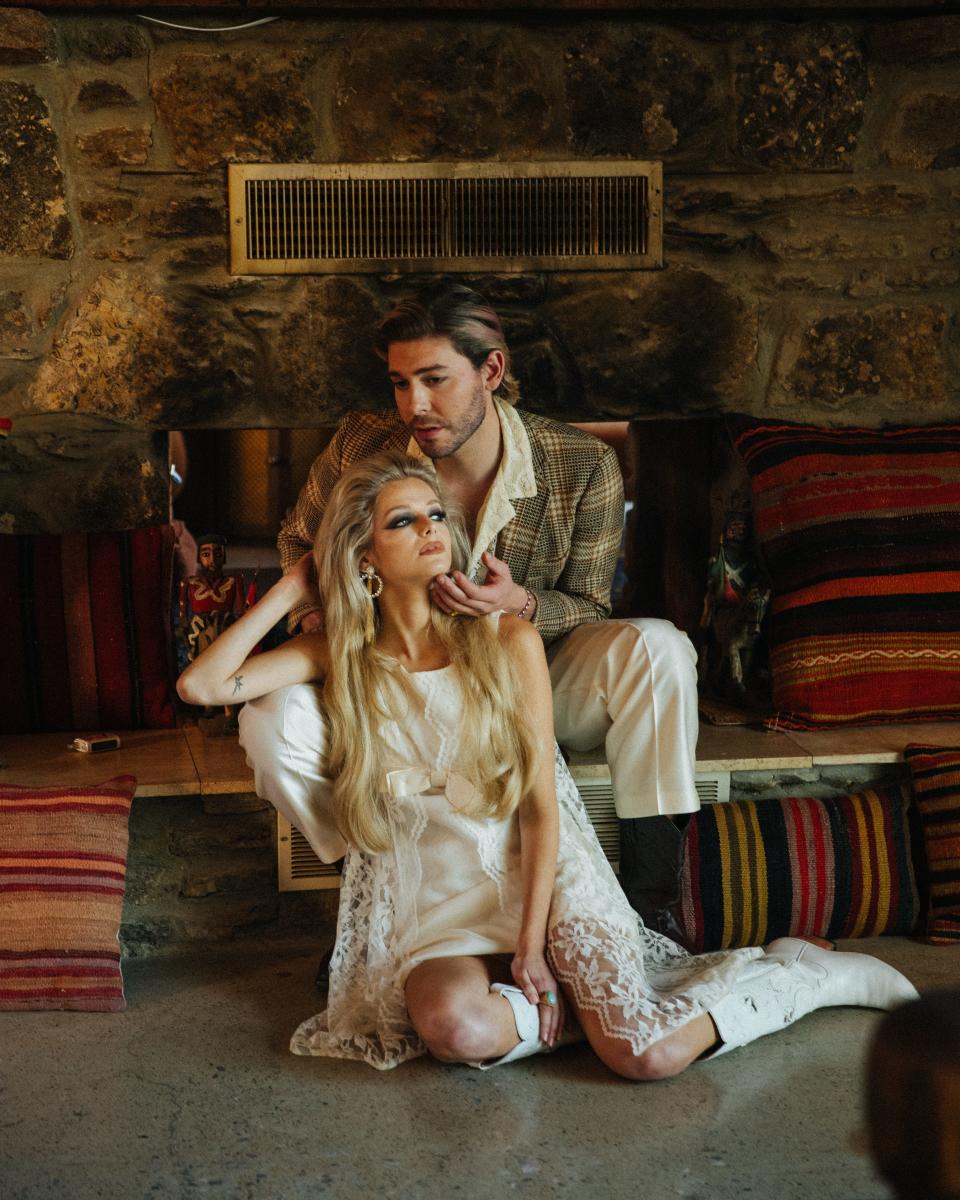Sam Williams, Carter Faith revive timeless Nashville vibes in Opryland area performances
Five years into a concerted effort at Nashville stardom, third-generation country music legacy performer Sam Williams (the son of Hank Williams Jr. and grandson of the iconic "Jambalaya" vocalist who died on Dec. 31, 1952) has finally figured out how to stand out, uniquely, from his foundational forefathers.
His latest single is a pairing with 2023 CMT Next Women of Country class member and native of Charlotte's northern suburbs, Carter Faith.

The work is more inspired by his authenticity and dialed into his particular vision of how Music City's past inspires the world's future.
The duo pair for a cover of Tammy Wynette's 48-year-old ballad "'Til I Can Make It On My Own."
In the hands of the young tandem, the song expands beyond being the Country Music Hall of Famer's 15th No. 1 song on country radio and one in which she highlights the devastation of the end of a relationship.
Country's classic art and vibes modernized
Releasing his 2019 album "Glasshouse Children" with a duet assist from Dolly Parton was too obvious. Williams is, yes, like Parton, not as much a pure singer as he is a song stylist.
However, he's also an aesthete with a highly developed appreciation of beauty, a savvy and self-taught music marketing mind, plus a father of a seven-year-old son, Tennyson.
These are all critical influences on his work.
Instead, in Williams and Faith's hands -- plus in the work of the audio engineers and producers, directors, fashion stylists, photographers, venues and visual artists specifically chosen to execute the song itself, its music video and its live, Saturday evening debuts at both the Grand Ole Opry and honky-tonk stage at the Nashville Palace -- "'Til I Can Make It On My Own" best achieves telling the most unified story yet of how country's classic art and vibes are actualized in the modern era.
Billboard's 2023 year-end charts highlight that nearly half of the time, domestic listeners prefer country music's mainstream offerings. As a century-old genre, country music can offer Morgan Wallen and Bailey Zimmerman or Megan Moroney and Lainey Wilson.
For the other half of America's years not yet tuned in, maybe the answer is hearing and seeing what they know country music to be; however, it is delivered painstakingly similar but lovingly advanced from what they remembered.
Williams a part of Universal Music Group's 'Revival' movement
Important to note as well is that Williams has recently been announced as signed to Universal Music Group's Nashville outpost alongside Belle Frantz, Danae Hays, HUESTON, Dillon James, Louie TheSinger, and Anne Wilson.
"We love country music, but we are going to broaden our spectrum to include all kinds of voices. That's what country is," stated UMG Nashville boss Cindy Mabe at the label's Jan. 2024 "Revival" introduction of its new, developing and diverse roster of just-signed talent at North Nashville's Clementine Hall.
Regular Clementine Hall tenants have included the inclusive and "progressively Christian" Gracepointe Church.

Gracepointe's mission is rooted in its commitment to being a "community welcoming the entire human family regardless of race, age, creed, physical abilities, marital or economic status, gender identity, or sexual orientation."
Nine months ago, Mabe officially replaced longtime Universal Nashville head Mike Dungan.
In her first message, she offered the following statement:
"Country is -- and will remain -- a genre of deep roots grounded in great storytelling and truth that incorporates creative influences across music styles and genres, and fans everywhere have shown us they are open to what our evolving genre has to offer. From Nashville to the world."
Why does the look and feel of country's forthcoming hits matter so much?
Modern music's marketplace now includes over 30 million songs uploaded to streaming DSPs yearly and an estimated 200 million-plus credited and streamable songs worldwide.
Thus, it's time to consider that for country songs to emerge alongside the currently mega-successful crop of hits, they must achieve the esoteric goal of feeling and looking exactly as they sound.

In conversation with The Tennessean backstage at the Grand Ole Opry, Faith, a "massive Tammy Wynette fan," notes that she believes the songs that involve but expand past a mathematical and scientific understanding of hooks, rhyme schemes, and tempos will expand country music's mainstream success.
Williams, a passionate advocate for the "unsaid" notions in country's mainstream push, adds that he's keen on both accurately advancing and embodying the historical legacies" of artists like Kenny Rogers and Dottie West (who also covered" 'Til I Can Make It On My Own" in 1978) but also remaining honest to the governing pop sensibilities of the times.
He adds that a marketplace that values the digital-first service of music and social media-driven marketing loses the value of feeling, hearing and seeing artists living their art in real-time in an honest -- but also appealing and stylized -- manner.
Dropping the fourth wall but also remaining conscious enough to present the most eye-catching image possible is perhaps a step too magical for artists already achieving Billboard success.
"There's a way to deliver emotions that isn't potentially fake and [embodying] something that isn't realistic," says Williams.
'God winks' offer inspiration in the recording process
The choice of "'Til I Can Make It On My Own" is one of many "god winks" involved in the song's heavily inspired recording process.

In 1975, Williams' grandmother, Audrey Williams, died in the same 9,000-plus square foot 4916 Franklin Pike home in which Tammy Wynette passed away 23 years later.
The home is the same place Hank Williams, Jr. grew up and was taught how to play music by Fats Domino and Jerry Lee Lewis, who would come by the home to pay respect to Audrey's late husband and Sam's grandfather.
Faith, like Williams, believes Wynette to be a "groundbreaking innovator," like Hank and Audrey Williams. For her, the record arrived, like many do, as she consciously drove the same streets Wynette did a half-century ago after experiencing life-altering events like the end of a relationship.
"I once played [Tammy Wynette's 1972 hit] "'Til I Get It Right' on repeat for 30 minutes and broke down in tears when I crossed the Music Row intersection where the location is that it's said she wrote the song. Nashville -- be it RCA Records' Studio A and B, Columbia's Quonset Hut, or even the Grand Ole Opry -- can powerfully alter how a song is imagined in the present day and obviously [the historical template] of how and why it's recorded."
Faith believes Wynette's legacy has inspired her creative "heart and soul" since her grandfather first played her music in his car as a child.
Now, as a Nashville-based recording artist, how she more directly and empathetically experiences many of the similar root causes of Wynette's lived emotions has "one million percent influenced" her singer-songwriter craft.

She now creatively operates best as a conduit between classic emotions, real-time existence and the genre's most lucrative future.
Williams gleefully interrupts Faith's stream of consciousness with a profound interjection.
"Carter, remember that when we recorded the song, that day was not okay. In that house with the producers who made my album, when you started singing upstairs, the lights in the house started flickering. It was one of those spiritual, 'woo-woo' moments that was out of our control."
Country's mainstream and its 'wildly [reimagined] context'
Covering songs by "paying tribute to the song's lyrics while wildly reimagining their emotional context" inspires Faith and Williams' original work to come.
Working on "'Til I Can Make It On My Own" achieves a deeper understanding of their lives not just as their authentic selves but more deeply, in their best selves as artists carrying forth country music's century-long tradition.
"Anybody can write a song. But when a song that you record and the world gets to hear that accurately defines the survival of a difficult period of your life, it heals your heart," says Williams.

Notably, the performer survives the death of his sister, Katherine Williams-Dunning, in a Jun. 2020 car crash and his mother, Mary Jane Thomas, on Mar. 22, 2022.
Thus, like every day he's lived in the past half-decade, the song arrives like a sonic tourniquet.
He speaks of tipping a hat to the past and pointing to the future of country music.
Songs recorded with such intentional depth and scope are never described that simply.
'I just hope we made Tammy proud'
"[Carter and I are from small towns and had big dreams that led us to a city that's hard to cut through. Re-recording "'Til I Make It On My Own" is me embracing history [tipping a] hat at me," adds Williams via a press statement encapsulating the power of the song's creative process.
Faith adds an earnest note.
"[Tammy, like I also try to be] was an honest writer of beautiful, heartbreaking and hopeful words...I just hope [Sam and I's performance] made [her] proud."
This article originally appeared on Nashville Tennessean: Sam Williams, Carter Faith revive timeless Nashville vibes in Opryland area performances
